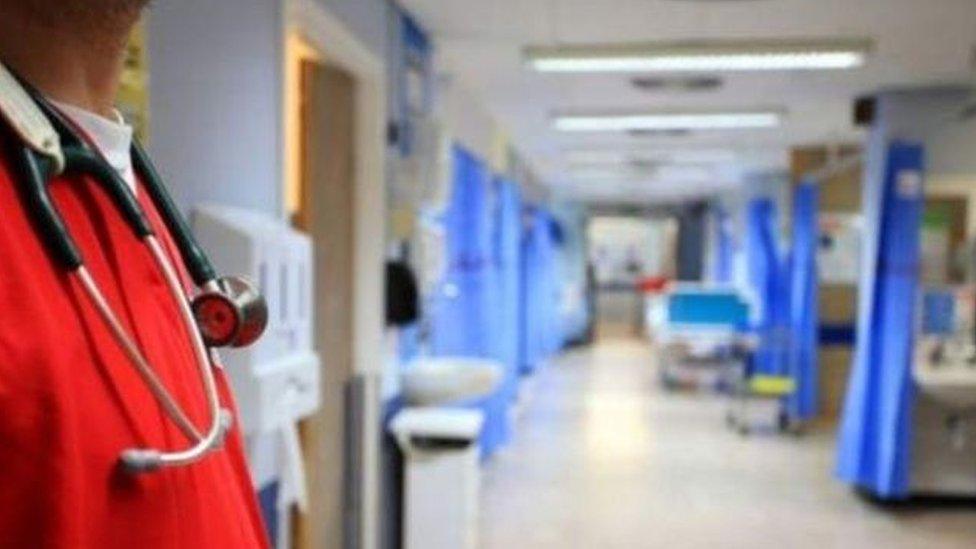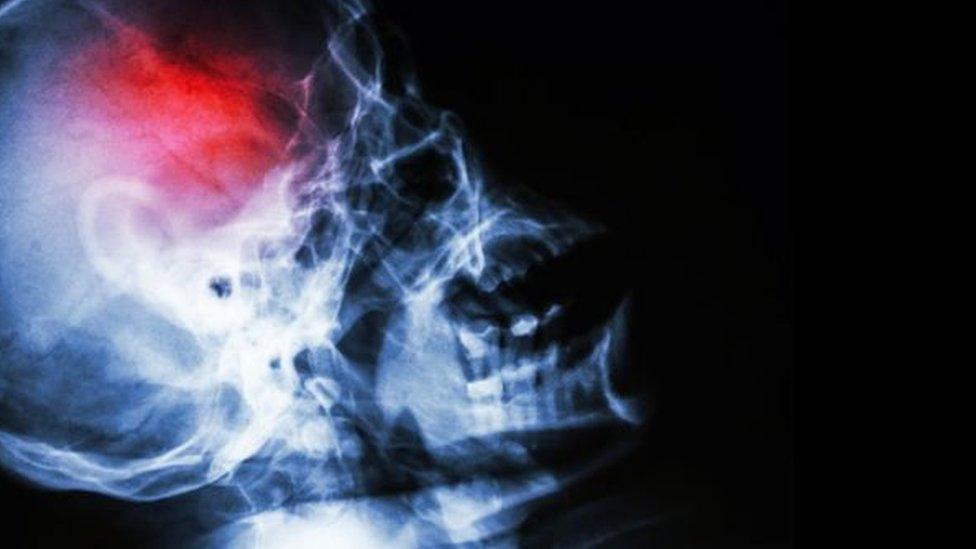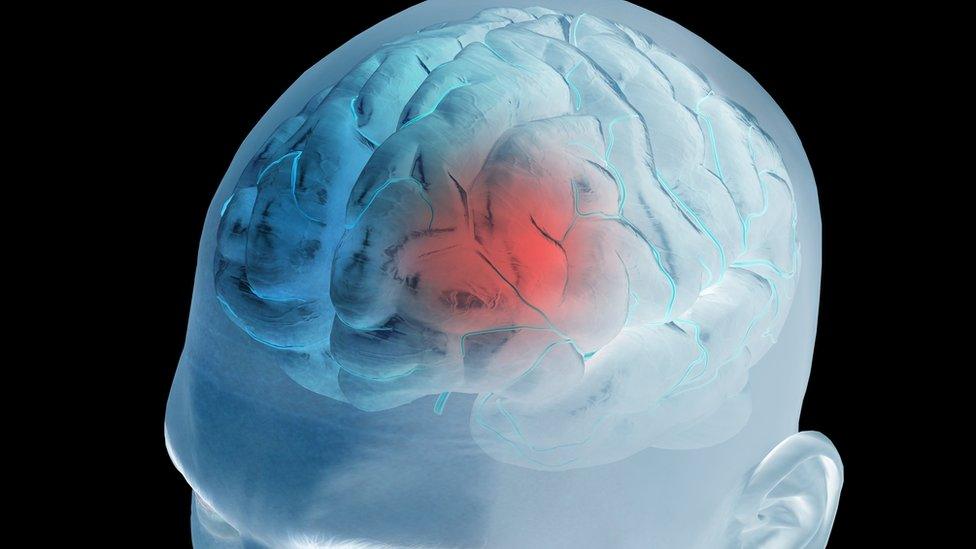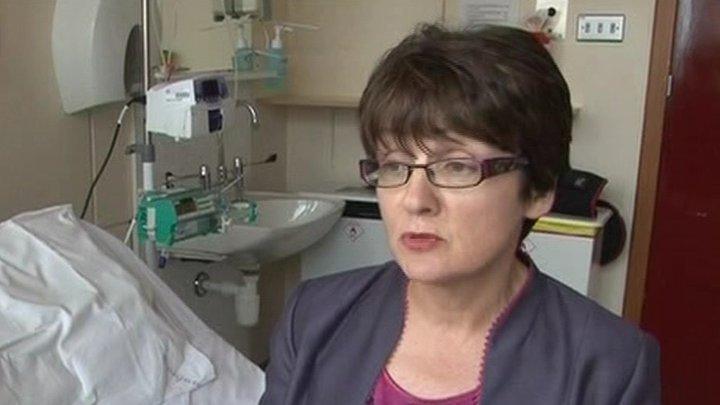Acute stroke services could be reduced in NI
- Published
- comments

There are a total of seven proposals, which if approved, would mean a major overhaul of the service
The number of specialist stroke units in Northern Ireland could be reduced to about four hospitals, the BBC understands.
The move is part of a proposed shake-up of stroke services across the five health trusts.
Every year, there are almost 3,000 hospital admissions and more than 1,000 stroke deaths in Northern Ireland.
According to independent health reports, Northern Ireland's stroke services fall below national standards.
Currently, services are spread across 11 hospital sites. However, specialists would argue that expertise is being spread too thinly and that it is denying some people access to the best of care.

A stroke victim's experience
Gary, 45, had a headache that did not respond to over-the-counter painkillers. He went to Belfast's Royal Victoria Hospital later the same day.
"They spotted whatever the signs were, they thought initially it was either a migraine or a stroke," he said.
"It came as a complete shock to me, particularly because of my age.
"I thought stroke was something that, maybe, older people got and I think maybe the statistics bear that out, but people of all age groups get strokes.
"It is important, the time element, because the quicker you get seen and get the clot-busting drugs... the better the outcomes are for you."

Dr Brid Farrell, a consultant in Public Health Medicine from the Public Health Agency, said the current system does not provide the very best of care to patients.
"Stroke service here is provided by skilled, dedicated and hardworking staff, but the current organisation of services sometimes makes it difficult for staff to consistently provide the very best care to patients."

Each year there are almost 3,000 hospital admissions and over 1,000 deaths in Northern Ireland due to stroke
Two recent independent reports have highlighted the need for change including the regulator, the RQIA, raising that there was not a clear regional model for delivery of stroke care and that there seemed to be an unsustainable number of hospitals providing stroke care.
Without a doubt, the move will result in fewer acute stroke units across Northern Ireland.
If the specialism is to be confined to about four hospitals it would mean other hospitals would provide a clot busting treatment for the patient before they are transferred, if required, by ambulance to a specialist unit.
There are a total of seven proposals which, if agreed, would mean a major overhaul of the service.
The proposals include providing an appropriate number of hyper-acute stroke units in order to deliver specialist early inpatient care to the most seriously-ill patient.
Other services will include seven-day assessments to those men and women experiencing a suspected mini-stroke (TIA) or clot busting treatment "thrombolysis" at fewer hospital sites.

Prof Bengoa chaired the panel for Northern Ireland health care reform
The location of the most critical units will be controversial. In fact, BBC News NI understands that for those hospitals that lose their specialist stroke unit there could be huge implications for their status as an acute hospital in the future.
The move would be the first significant test of health reform as proposed by the Bengoa Health Review.
In a highly unusual move, civil servants have said it is necessary to have a "conversation" about reform before the actual consultation begins - indicating just how sensitive this is.
Both stages will last about 12 weeks.
While some might see that as constructive, others might describe it as time wasting.
- Published26 October 2016

- Published25 October 2016

- Published25 October 2016

- Published29 November 2016

- Published29 October 2012
